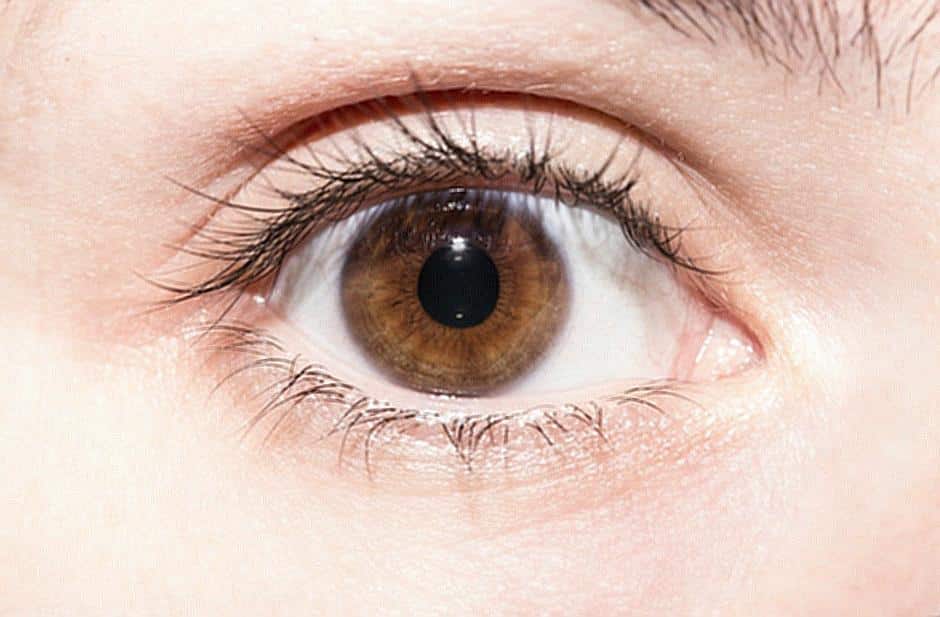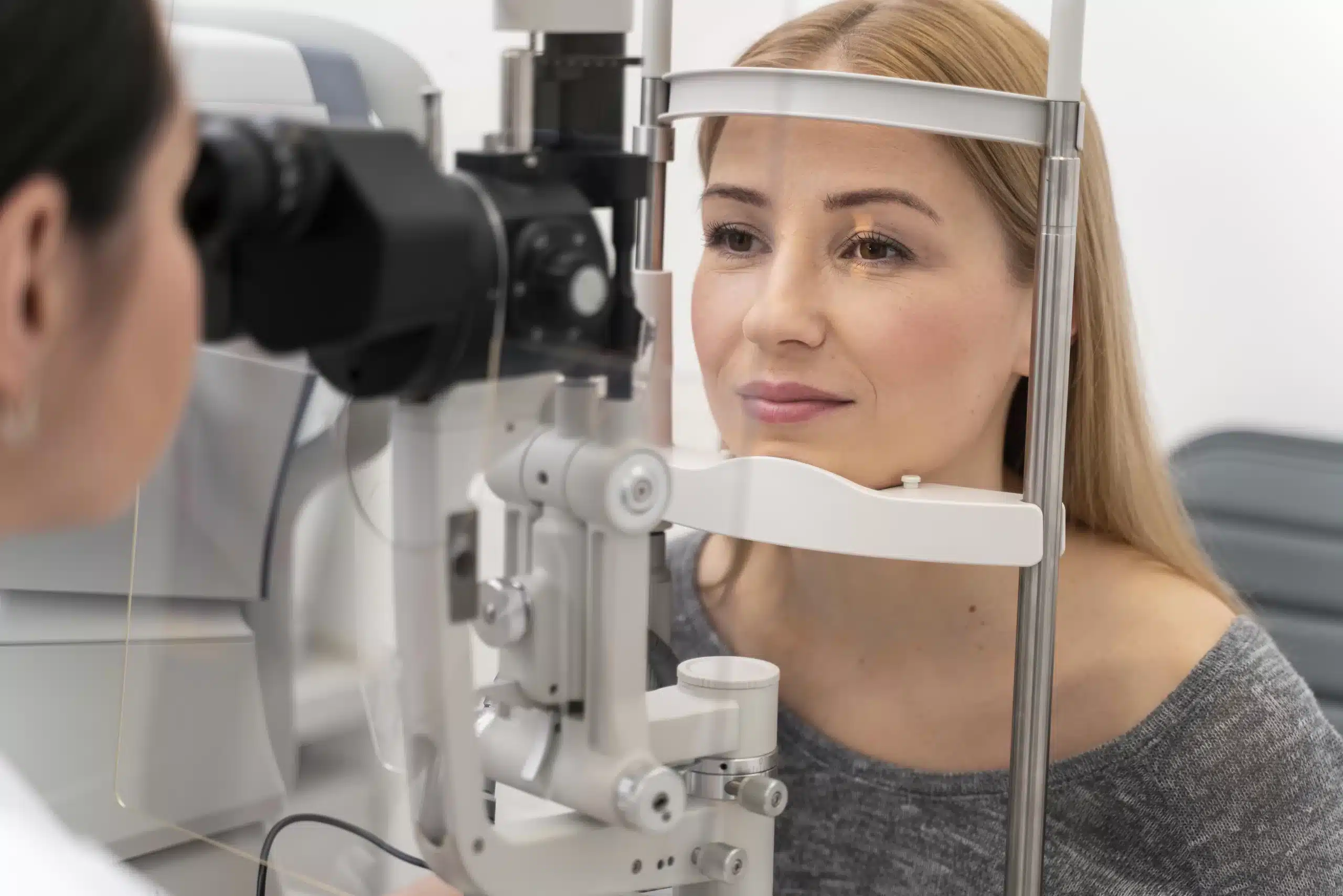Eye Care 4 U is a company that specializes in providing a wide range of eye care services to individuals of all ages. The company has a team of highly skilled and experienced optometrists, ophthalmologists, and other eye care specialists, who are committed to delivering superior quality care and treatments. With a focus on prevention, early detection, and treatment of eye diseases and conditions, Eye Care strives to help individuals achieve and maintain optimal vision.
The company offers a comprehensive range of eye care services, including eye exams, contact lens fittings, LASIK consultations, and treatment of various eye conditions, such as glaucoma, cataracts, and diabetic retinopathy. Their state-of-the-art facilities are equipped with the latest technology and equipment, ensuring that patients receive the most advanced and effective treatments available.
In addition to their clinical services, Caring 4 U Eyes also provides a range of products to support individuals with their eye care needs. This includes a variety of eyewear options, such as frames and lenses for prescription glasses and sunglasses. The company also offers a selection of contact lenses, including daily, weekly, and monthly disposable lenses, as well as specialty lenses for individuals with unique vision needs.
It is dedicated to providing personalized care, and its team works closely with each patient to ensure that they receive the best possible treatment to improve their vision and overall eye health. With their commitment to excellence and dedication to patient care, this is a trusted provider of comprehensive eye care services and a go-to source for all things related to eye health.
What Are The Common Eye Problems?
The eyes are one of the most important and complex organs in the human body. They are responsible for our sense of sight, which is critical to our daily living. Unfortunately, our eyes are also vulnerable to many conditions and problems that can severely affect our vision and overall health. Here are some of the most common eye problems:
- Refractive Errors: Refractive errors are the most common type of eye problem, and they occur when the shape of the eye prevents light from properly focusing on the retina. Refractive errors can result in nearsightedness (myopia), farsightedness (hyperopia), or astigmatism.
- Cataracts: A cataract is a clouding of the lens in the eye, which can cause blurry vision, sensitivity to light and glare, and difficulty seeing at night. Cataracts are typically age-related but can also be caused by injury or certain medications.
- Glaucoma: Glaucoma is a condition that damages the optic nerve and can lead to vision loss or blindness. It is often caused by increased pressure within the eye and can be tough to detect in its early stages.
- Macular Degeneration: Age-related macular degeneration (AMD) is a condition that causes damage to the macula, leading to a loss of central vision. AMD is the leading cause of vision loss in people over 50 years old.
What Are The Symptoms Of Eye Problems?
The Eyes Problem symptoms can vary depending on the type and severity of the condition. Here are some common symptoms to watch out for:
- Blurred or distorted vision
2. Eye pain or discomfort
3. Double vision
4. Sensitivity to light
5. Dry or itchy eyes
6. Redness, swelling, or discharge
7. Flashes of light or floaters in the vision
8. Loss of peripheral vision.
It is essential to consult an eye doctor immediately if you experience any of these symptoms, as some conditions can lead to permanent vision loss if not diagnosed and treated promptly.
What Are The Treatment Options For Eye Problems?
The treatment options for eye problems depend on the specific condition being treated. In general, eye problems can be treated with medications, surgery, optical aids, or a combination of these options. Here are some common treatments:
- Prescription eyeglasses or contact lenses to correct refractive errors.
2. Medications such as eye drops to treat glaucoma or prevent infection after surgery.
3. Surgery to remove cataracts or correct refractive errors.
4. Laser therapy to treat some eye conditions like glaucoma or diabetic retinopathy.
The right treatment for your eye condition will depend on the type and severity of the problem, as well as your overall health and medical history. Your eye doctor can discuss the best treatment options for you after evaluating your condition.
What Is The Cost Of Eye Examination?
The cost of an eye examination can vary depending on several factors, such as your location, the type of exam, and your insurance coverage. On average, a basic eye exam can cost between $50 and $200, while a more comprehensive one can cost $100 to $300.
If you have insurance coverage, you may be able to get a discounted rate for your eye exam. Some insurance plans cover routine eye care, while others offer vision benefits as an added option. It is essential to check with your insurance carrier to see what’s covered and what your out-of-pocket expenses will be.
Which Insurance Plans Are Accepted?
Most eye doctors accept insurance plans, including private insurance, Medicare, and Medicaid. The type of insurance accepted can vary depending on the eye doctor or clinic. It is important to check with your insurance carrier and the eye doctor’s office to make sure your insurance will be accepted.
If you do not have insurance coverage, some eye clinics may offer cash discounts or payment plans to help make eye care more affordable.
How Often Should I Get My Eyes Checked?
The frequency of eye exams will depend on your age, medical history, and current eye condition. Here are some general guidelines:
- Children should have their first eye exam at 6-12 months old, another at age 3, and before starting school.
2. Adults should have regular eye exams every 2 years if there are no issues, and every year if there is a family history of eye problems, diabetes, or high blood pressure.
3. People over 65 years old should have an eye exam every year due to the increased risk of age-related eye conditions.
Your eye doctor can recommend the appropriate frequency of eye exams for your specific needs.
What Is The Difference Between An Optometrist And An Ophthalmologist?
Optometrists and ophthalmologists are both eye care professionals, but they have different levels of training and expertise.
An optometrist is a Doctor of Optometry (OD) who specializes in the detection and treatment of common eye conditions, vision problems, and refractive errors. They can prescribe eyeglasses and contact lenses, diagnose and treat eye diseases, and provide pre-and post-operative care for patients undergoing eye surgery.
An ophthalmologist is a medical doctor (MD) who specializes in eye and vision care. They can perform eye exams, diagnose and treat eye diseases, prescribe medications, and perform eye surgeries like LASIK and cataract surgery.
While both optometrists and ophthalmologists can provide primary eye care and work together to provide comprehensive eye care, ophthalmologists are qualified to perform surgery and treat more complex eye conditions.
What Is Lasik Surgery?
LASIK (Laser-Assisted In Situ Keratomileusis) is a popular surgical procedure used to correct refractive errors, such as nearsightedness, farsightedness, and astigmatism. The procedure uses a laser to reshape the cornea, allowing it to properly focus light onto the retina, resulting in clearer vision.
LASIK surgery typically takes around 15 minutes per eye and is done on an outpatient basis. After the procedure, most patients can return to their daily activities within a day or two.
Is Lasik Surgery Safe?
LASIK surgery is generally considered safe, and the procedure has a high success rate. However, as with any surgical procedure, there are risks involved, including:
- Dry eyes
2. Glare or halos around lights
3. Infection or inflammation
4. Overcorrection or under correction of vision.
The risks associated with LASIK are relatively low, and most side effects are temporary and can be managed with medication or additional surgery.
What Is The Recovery Time For Lasik Surgery?
The recovery time for LASIK surgery varies depending on the individual and the extent of the procedure. Most patients experience improved vision within a few hours of the surgery, but it may take several days to weeks for vision to stabilize fully.
During the recovery period, patients should avoid rubbing their eyes, swimming, or participating in contact sports. It is also essential to follow the post-operative instructions provided by your eye doctor, which may include using prescription eye drops and attending follow-up appointments.
How Can I Protect My Eyes From The Sun’s Harmful Rays?
Protecting your eyes from the sun’s harmful rays is essential to maintaining good eye health. Here are some tips:
- Wear sunglasses that block 100% of UV rays when outdoors, even on cloudy days.
2. Wear a hat with a brim to provide additional shade for your eyes.
3. Avoid outdoor activities during peak sun hours (10 am to 2 pm).
4. Use sunscreen around your eyes to protect the delicate skin.
5. Install UV-blocking film on your car windows to protect your eyes while driving.
What Are The Benefits Of Wearing Sunglasses?
Wearing sunglasses offers several benefits beyond just protecting your eyes from the sun’s harmful rays. Here are some of the benefits:
- Improved visual acuity by reducing glare and bright light.
2. Reduced risk of cataracts, macular degeneration, and other sun-related eye problems.
3. Protection for the delicate skin around the eyes, reducing the risk of wrinkles and skin cancer.
4. Comfort and style, as sunglasses can add a fashionable touch to any outfit.
What Are The Best Vitamins For Eye Health?
Several vitamins and minerals are beneficial to eye health, including:
- Vitamin A: Helps maintain a healthy cornea and is essential for good night vision.
2. Vitamin C: Protects the eyes from sun damage and may reduce the risk of cataracts.
3. Vitamin E: Has antioxidant properties and may reduce the risk of age-related macular degeneration.
4. Zinc: Helps transport vitamin A to the retina and is essential for good visual function.
These vitamins can be found in a healthy diet that includes fruits, vegetables, and whole grains. Some people may also benefit from supplements, but it is essential to discuss any supplement use with your healthcare provider.
How Can I Improve My Vision Naturally?
While many eye conditions require medical treatment, there are some things you can do to improve your vision naturally. Here are some tips:
- Practice good eye hygiene by keeping your eyes clean and avoiding touching them frequently.
2. Exercise regularly to improve blood flow and oxygen delivery to the eyes.
3. Rest your eyes periodically to reduce eye strain, especially while working on a computer.
4. Eat a healthy diet that includes plenty of fruits and vegetables, whole grains, and lean protein.
5. Take breaks while working on closeup tasks to reduce eye strain.
By practising healthy habits and undergoing routine eye exams, you can maintain good eye health and avoid many common eye problems.
Conclusion
In conclusion, Eye Care 4 U is an essential service that provides comprehensive eye care to people of all ages. Their team of qualified optometrists and ophthalmologists use advanced technology and knowledge to deliver excellent eye care services.
Eye Care offers a range of services such as eye exams, eye disease diagnosis and management, contact lens fittings, and eyeglasses prescriptions. These services are crucial for maintaining good eye health and preventing eye diseases.
Furthermore, it takes a patient-centred approach, ensuring that their patients receive personalized care and attention to their individual needs. The team also places a strong emphasis on patient education, educating their patients on the importance of eye health and how to maintain it.
Overall, this is a reliable and trustworthy eye care service provider that is committed to ensuring the well-being of their patients’ eye health. With their qualified team, advanced technology, and personalized care approach, they deliver exceptional eye care services that are tailored to meet the individual needs of their patients.




